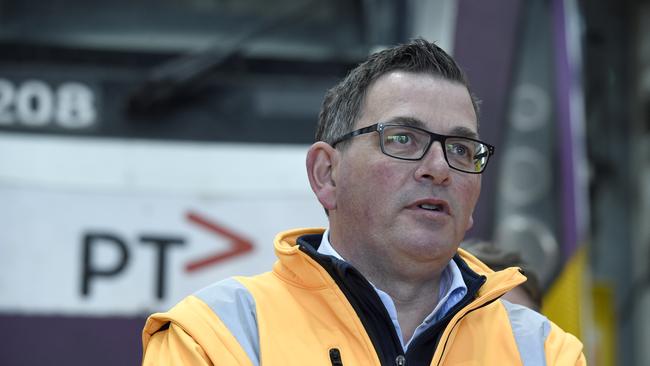Rising prices continue to thwart Federal Reserve and Reserve Bank: Robert Gottliebsen

So far, all their efforts to change that situation in key economic areas have failed, but both central bank chiefs have weapons that they believe will greatly curtail price rises next year. Powell and Lowe also know that those weapons are powerful and both carry the risk of overshooting and bringing on a severe downturn.
The reverse is also true, and in trying to avoid a downturn they could leave inflation intact.
To illustrate, when Powell announced his latest 0.75 per cent interest rate increase, he expressed optimism about containing future interest rate rises. Immediately, that rallied Wall Street, which Powell sees as counter-productive because it will further fuel price rises. Sensing the danger, Powell immediately qualified his earlier rate optimism by saying future interest rate rises were still in the pipeline. Market enthusiasm cooled.
Powell has a different set of weapons to Lowe. When the US raises interest rates, those with existing mortgages are not impacted and continue to pay their low interest rates. But those taking out new mortgages pay the high rates and this is causing a very sharp fall in the US building industry where price rises are very difficult to achieve. Indeed, steel prices have slumped.
Powell’s extra weapon, quantitative tightening, is being used on a scale that has never before been attempted in the US. There is danger that, in combination with higher interest rates, quantitative tightening will cause economic devastation.
To stimulate the U S economy during the Covid-19 years, the Federal Reserve not only slashed interest rates but pumped money into the community by buying US bonds and mortgages and that process added $US9 trillion to its balance sheet.
As those securities mature, the Federal Reserve is now pocketing the money, so withdrawing money from the community.
Powell has suggested this will continue for another two years, and it will shrink the central bank’s bond portfolio by about $US2.5 trillion. Historically contracting money supply has had a devastating impact on the U S economy and there is great debate as to what will happen in 2023 and 2024.
To avoid overshooting, Powell will need to keep very close to what is happening on the ground, but his task is made much easier because he has representatives in many states collecting information.
In Australia, unlike the US, when the Reserve Bank increases interest rates most holders of mortgages make the extra payments within three months. There are a significant number of borrowers who locked in fixed rates, but most of those mature next year. The high interest rates are causing banks to lower the amount they lend on mortgages by about 20 per cent, and that is forcing average house prices down by a similar amount. These are savage blows to that section of the community that borrowed over the last two years.
The Reserve Bank is also undertaking its own quantitative tightening, but not on the same scale as the US.
Both are hampered by big government quantitative tightening.
Both central banks have warned that further interest rate rises are in the pipeline, but they now understand there is a delay between the official rate increases and the impact on the community.
One of Powell’s advantages not shared by Lowe is that American gas producers have stepped up production and the gas prices fallen sharply, which contains energy cost rises, particularly in manufacturing.
In Australia, Queensland gas producers have sold most of their gas production and Victorian Premier Daniel Andrews refuses to develop the state’s immense low-cost non fracked gas deposits that exist alongside the Australian pipeline network. Had Andrews acted earlier this year, Australia’s energy price outlook would be more like the US.

The global interest rate barometer, the US 10 year bond rate, briefly fell below 4 per cent when Powell hinted at interest rate restraint but when he qualified the statement sellers rushed in and the bond yield rose again above four per cent.
Nevertheless, the bond yield is substantially below the peak of around 4.4. per cent reached last month.
The rise in bond prices over the last few weeks which pushed down the yield has been a big factor in the advance on Wall Street.
But the higher share prices are closely linked to the ability of many US (and Australian) companies to lift their prices to match or exceed cost increases.
Both Powell and Lowe have their weapons aimed at destroying that ability because in the ultimate that’s the only way inflation can be brought down.



Federal Reserve chair Jerome Powell and our Reserve Bank governor Philip Lowe are both being thwarted by the same problem: enterprises large and small continue to raise prices, and consumers continue to pay those higher prices.